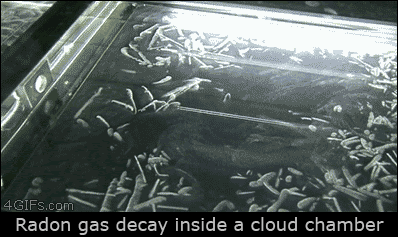Radon
What is Radon and Why Does it Matter?
Radon is the number one cause of lung cancer in the United States for non-smokers. Lung cancer is usually not discovered until its later stages, and radon-induced lung cancer kills an estimated 21,800 people every year. Radon is a radioactive element that is a product of uranium decay. It is an invisible, odorless gas found naturally in rocks and soils that rises to the surface to be released. Radon gas can enter your home through cracks in the foundation and become trapped, accumulating over time. The levels of radon can vary from house to house.
Pennsylvania is estimated to have some of the highest radon levels in the world - an estimated 40% of PA homes have radon levels above Environmental Protection Agency's action guideline of 4 picocuries per liter (pCi/L). A pCi is a unit of measurement for the rate of radon’s radioactive decay over time. The average radon level in a Pennsylvania basement is 7.0 pCi/L while the average of first floors in PA is 3.5 pCi/L. The EPA strongly advises homeowners to mitigate radon at 4 pCi/L. However, it is recommended to take action for 2 - 4 pCi/L because, as scientists have supported, there is not a truly safe level of radon to remain in a building.


Protect PT's Radon Air Monitoring Program (RAMP)
Radon gas is the leading cause of lung cancer among nonsmokers in the US. It is colorless, odorless, and tasteless, making it undetectable without proper testing equipment.
You can now participate in free radon testing through Protect PT’s Radon Air Monitoring Program (RAMP)!
EcoQube Lending
Within our service area, you can borrow a high quality, consumer grade radon monitor called an EcoQube. With the EcoQube app, participants can check their radon levels in real time, see average radon levels, and save the results for future reference.
EcoQube testing lasts 30 days.
RadonEye Pro Monitoring
Near our homebase in Harrison City, PA, we offer radon tests with a professional grade radon monitor called a RadonEye Pro. DEP certified Protect PT staff install and retrieve the monitor, and provide a report of the test results.
RadonEye testing lasts 14 days.
Both monitors are about the size of a soup can, plug into a standard power outlet and connect to wifi. They sit quietly on a flat surface collecting data.
If high levels of radon are found, Protect PT will provide you with resources for how you can get a mitigation system for your home and discuss a plan for a follow-up monitoring. Read this guide from ROCIS to learn how to hire a mitigation contractor in Pennsylvania.
